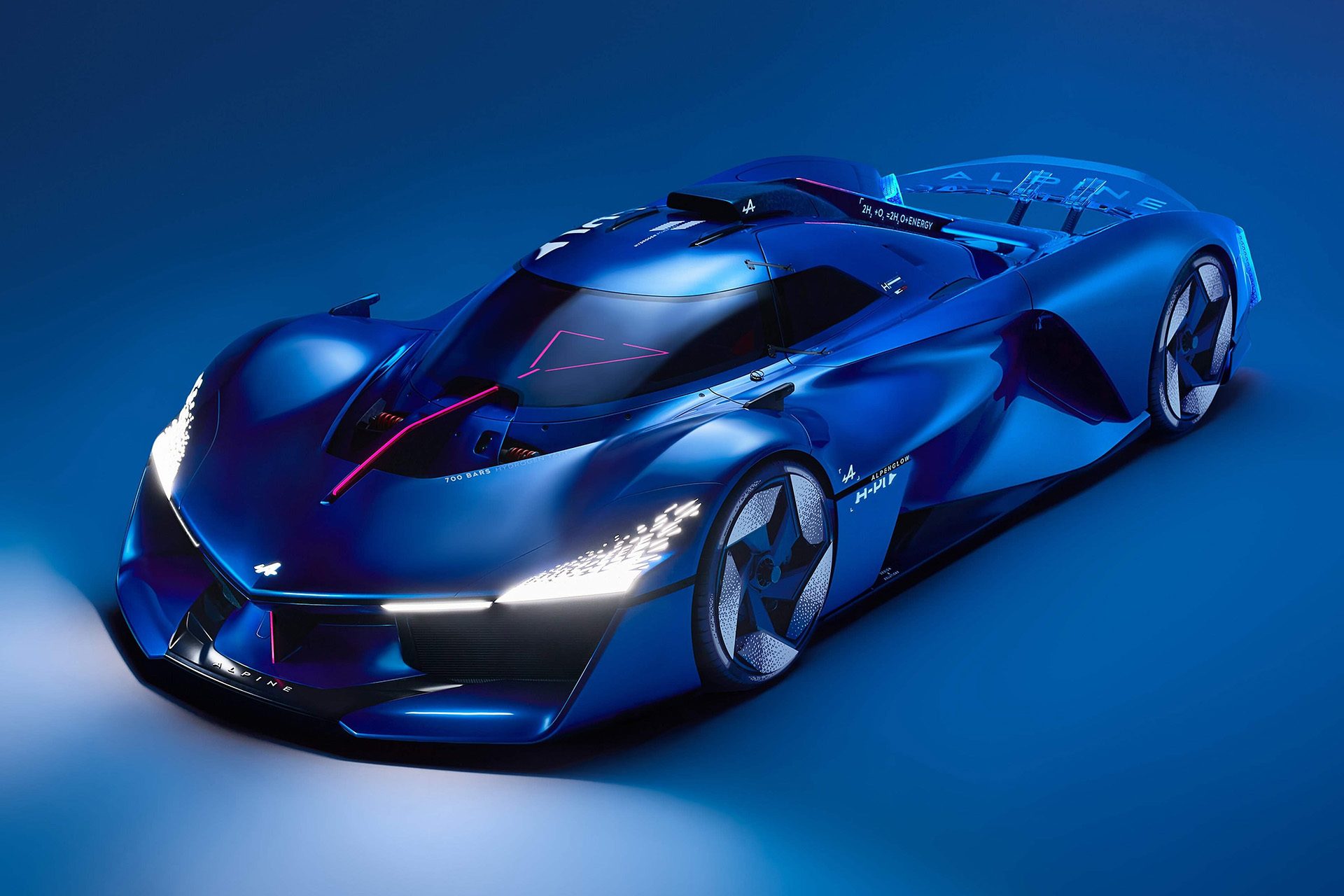Alpine's Hydrogen Evolution: From Concept to Prototype
Key Ideas
- Alpine progresses from the Alpenglow concept to the two-seat Hy4 prototype, showcasing dedication to hydrogen combustion technology and road orientation.
- The development includes a new in-house developed V6 hydrogen engine for increased power and efficiency, tackling challenges like temperature management and fuel storage.
- Alpine aims for hydrogen-powered Alpenglow production, eyeing entry into the hydrogen-combustion class at the 2027 Le Mans 24 Hours, pending infrastructure development.
Alpine is advancing its hydrogen journey with the development of the Hy4 prototype, an evolution of the Alpenglow concept originally introduced in 2022. The shift to a two-seat set-up on a Ligier LMP3 racing chassis indicates a move towards road orientation. Despite an electrical fault delaying the debut at the World Endurance Championship in Spa-Francorchamps, Belgium, Alpine's design chief remains optimistic about the project's future. The company plans a small production run of the hydrogen-powered supercar, emphasizing the pursuit of both hydrogen-combustion and battery-electric technologies. Not just a concept, the Alpenglow is seen as a long-term 'programme' with ongoing improvements in styling and utility. Key to this evolution is the development of a new V6 hydrogen engine to replace the existing turbocharged four-cylinder, enhancing power and efficiency. However, there are challenges to overcome, such as combustion control due to hydrogen's unique properties, including wide flammability range and mixing difficulties at high speeds. Alpine is committed to overcoming these hurdles, with testing underway on the dynamometer with the goal of powering the Alpenglow with hydrogen by year's end. While entry into the 2027 Le Mans 24 Hours hydrogen-combustion class is envisaged, Alpine awaits further infrastructure development. The company recognizes the importance of a robust hydrogen refueling network, highlighting Renault Group's Hyvia venture for potential support. Additionally, the need for clean hydrogen production is emphasized, with a focus on decarbonized or green hydrogen. Addressing challenges like fuel storage space and infrastructure limitations will be crucial for the success of Alpine's hydrogen-powered endeavors.
